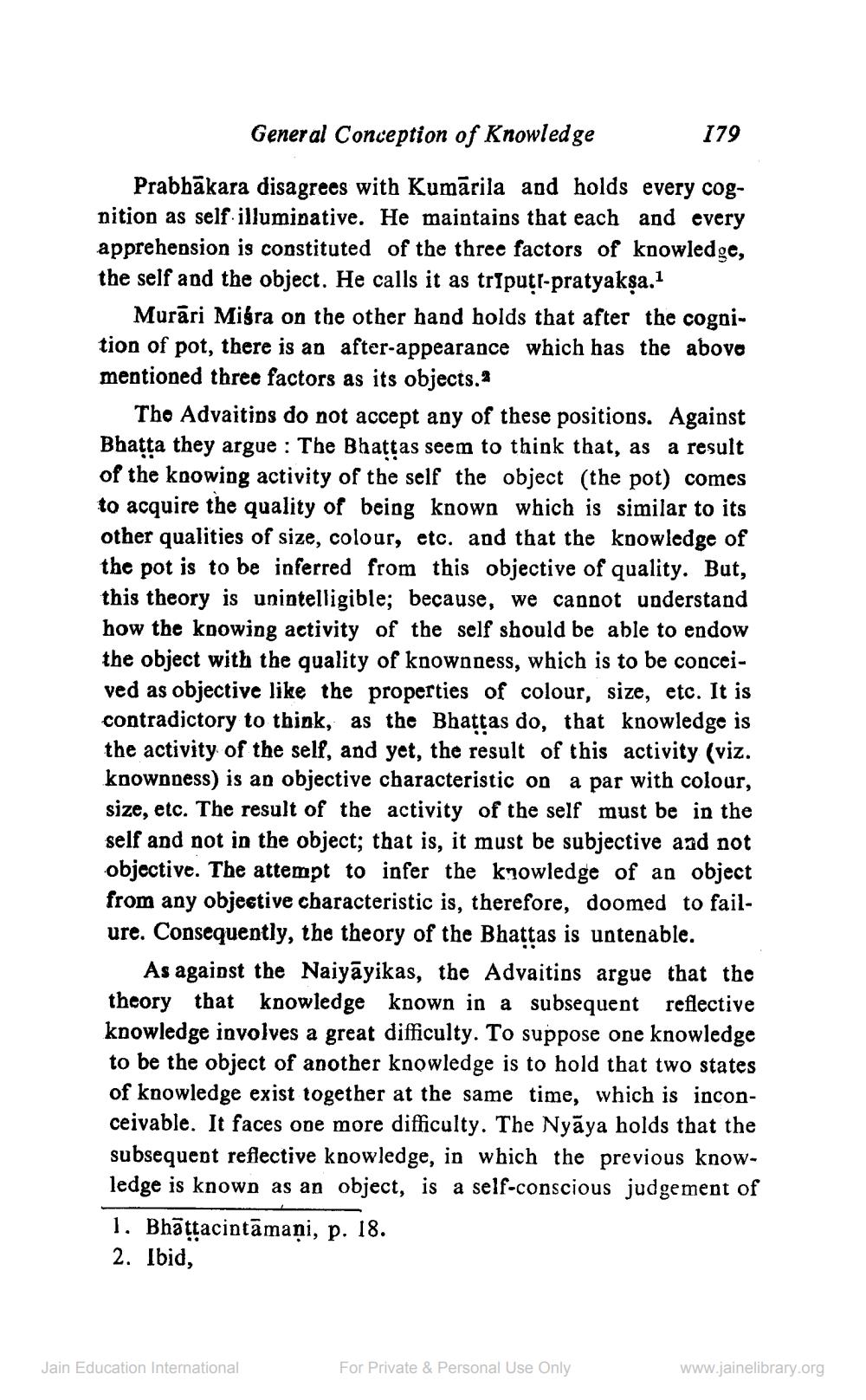________________
General Conception of Knowledge
179
Prabhākara disagrees with Kumārila and holds every cognition as self.illuminative. He maintains that each and every apprehension is constituted of the three factors of knowledge, the self and the object. He calls it as tripuţr-pratyaksa.1
Murāri Migra on the other hand holds that after the cognition of pot, there is an after-appearance which has the above mentioned three factors as its objects.
The Advaitins do not accept any of these positions. Against Bhatta they argue : The Bhattas seem to think that, as a result of the knowing activity of the self the object (the pot) comes to acquire the quality of being known which is similar to its other qualities of size, colour, etc. and that the knowledge of the pot is to be inferred from this objective of quality. But, this theory is unintelligible; because, we cannot understand how the knowing activity of the self should be able to endow the object with the quality of knownness, which is to be conceived as objective like the properties of colour, size, etc. It is contradictory to think, as the Bhattas do, that knowledge is the activity of the self, and yet, the result of this activity (viz. knownness) is an objective characteristic on a par with colour, size, etc. The result of the activity of the self must be in the self and not in the object; that is, it must be subjective and not objective. The attempt to infer the knowledge of an object from any objective characteristic is, therefore, doomed to failure. Consequently, the theory of the Bhattas is untenable.
As against the Naiyāyikas, the Advaitins argue that the theory that knowledge known in a subsequent reflective knowledge involves a great difficulty. To suppose one knowledge to be the object of another knowledge is to hold that two states of knowledge exist together at the same time, which is inconceivable. It faces one more difficulty. The Nyāya holds that the subsequent reflective knowledge, in which the previous knowledge is known as an object, is a self-conscious judgement of 1. Bhāttacintāmaņi, p. 18. 2. Ibid,
Jain Education International
For Private & Personal Use Only
www.jainelibrary.org




